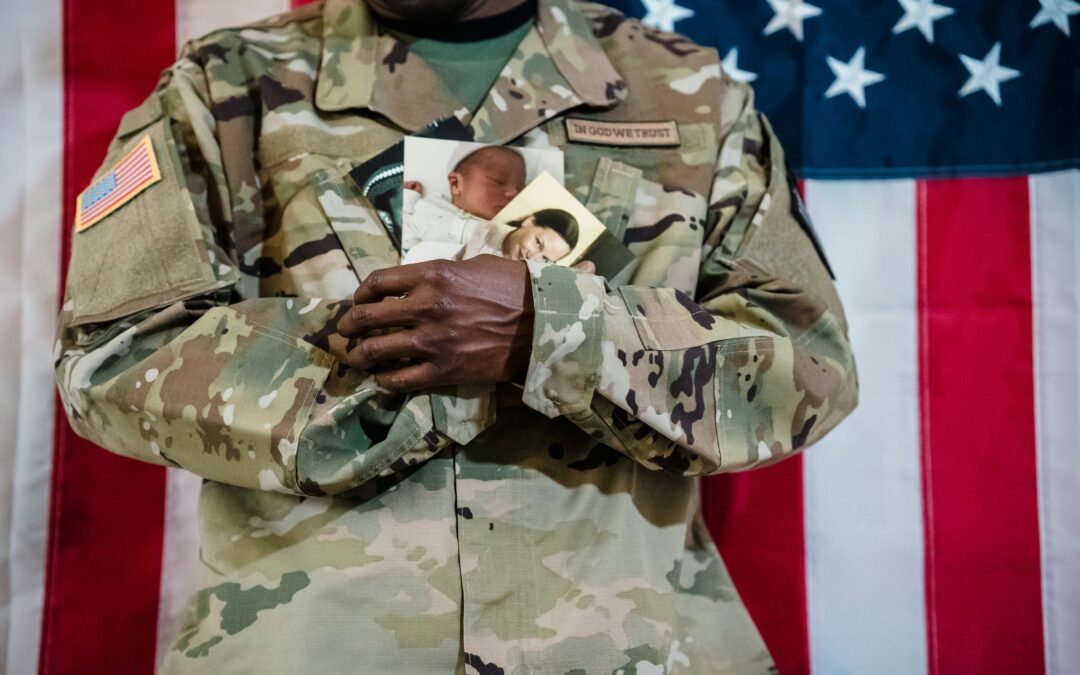Author: Major General Gregg Martin, US Army (Retired), PhD, with his wife Maggie and son Phil
In my book, Bipolar General: My Forever War with Mental Illness, I capture “Family Perspectives” in the Appendix. My wife Maggie and our three sons explain that they just couldn’t discern a pattern in my bipolar behaviors; that they couldn’t connect the dots, until my mania sky-rocketed, I was fired from my job, forced to retire, and in full-blown crisis. This points to the difficulty of recognizing bipolar disorder (BD) and distinguishing it from a mentally well state, and the importance of everyone receiving the basics of psychological first aid before there’s a crisis.
My son Phil adds, “because BD is a spectrum-based illness, decades of early warning signs are, or can be, mistaken for the BD patient’s ‘normal’, habitual behavior – their baseline. Furthermore, many societies reward behavior/performance/activity/energy levels that are, in fact, indicators and predictors of more serious illness to come.” This was all true in my case and the response of family members.
Maggie – like other “active caregivers” – is the unsung hero of the Martin family bipolar odyssey. Like a good soldier, she never accepted defeat, never quit, and never left her sick family members.
Her key take-aways and lessons learned from supporting me and our two bipolar sons are:
However, Maggie cautions that there may come a time when the caregiver must make the tough decision to step back from the patient, and put themselves first, because the situation has become too toxic and their own wellbeing is at risk. This is hard, but self-protection must come first. This is not the same as “giving up” on the person.
Now in my eleventh year of recovery since diagnosis with BD, having two adult sons whose BD was triggered as teenagers, and discussing all this with my amazing wife Maggie, here are my thoughts on supporting a family member living with BD.
How to help:
– If you suspect a mental health problem, get your family member, friend, or colleague to a medical professional ASAP. This could be the difference between life and death.
– Provide a loving, kind, caring, patient, non-judgmental presence, and emotional support. (Note: love combines both “law and order” and “mercy and compassion.”)
– Encourage and support a treatment plan, and exhort your loved one to stick to it. Ideally you would develop it together as a team, to promote two-way buy-in.
– Educate yourself and the family. Learn everything you can.
– Listen, stay calm, and don’t blame the sufferer for their condition. Avoid criticism. Snuff out any whiff of stigma.
– Respect their space and privacy, while also setting healthy boundaries. Promote and encourage a healthy, structured routine.
– Observe. Know the signs of crisis, and have a response plan in place, ahead of time. And if you need to call in law enforcement, be sure to request a “Crisis Intervention Team”, as opposed to standard police.
– Be supportive without being overbearing. Recognize that your loved one may have a bad day from time to time, aside from BD.
– Treat the illness seriously.
Supporting a loved one with BD is very challenging. You must persevere, take it one step/one day at a time, and take good care of yourself.
A word to extended family: stay engaged, communicate, be non-judgmental, stay vigilant. Asking about mental health, with good intentions and respect for privacy, is not being nosy. Son Phil cautions that “respect for privacy and personal space can all-too-easily become excuses to avoid responsibility.”
Provide connection, which generates HOPE, which saves lives. Tell your loved one that “this is not your fault – you’re going to get better…” and, “I’m not giving up on you!”
Here’s how to make a tough situation worse:
– By perpetuating stigma and casting judgment.
– By not understanding, and believing the condition is the fault of the sufferer.
– By being overprotective.
– By neglecting, isolating, ignoring, or giving up on the loved one.
– Allowing family conflict to develop over the situation.
– Through ignorance, anger, resentment, fear, blame, negligence, and apathy.
All this may seem like a high bar to meet, but don’t worry about being perfect. Just do your best.
Bottom line is that family is critical to bipolar and mental health recovery. It’s the compassionate, caring, life-sustaining bedrock.
Resources:
– The IBPF website (IBPF.org – International Bipolar Foundation) and its free book, Healthy Living with Bipolar Disorder.
– The CREST.BD website (CRESTBD.CA – Collaborative Research Team to study psychosocial issues in Bipolar Disorder.)
– The Bipolar Disorder Survival Guide: What You and Your Family Need to Know by David Miklowitz.
– NAMI website (nami.org – National Alliance on Mental Illness), and You Are Not Alone by Ken Duckworth.
– DBSAlliance.org (Depression and Bipolar Support Alliance.)
– ISBD.org (International Society for Bipolar Disorders.)
– DepressionEducation.org by Dr. Jim Phelps.
– BPHope.com (Bipolar Hope.)
– Any of the excellent bipolar memoirs, including:
- Unquiet Mind by Kay Redfield Jameson
- Brainstorm by Sara Schley
- Burn Rate by Andy Dunn
- Manic by Terri Cheney
- Bipolar General by Gregg Martin
- My Bipolar Odyssey by Louise Dwerryhouse (forthcoming.)
– A First-Rate Madness by Nassir Ghaemi, and Touched with Fire by Kay Redfield Jameson.


